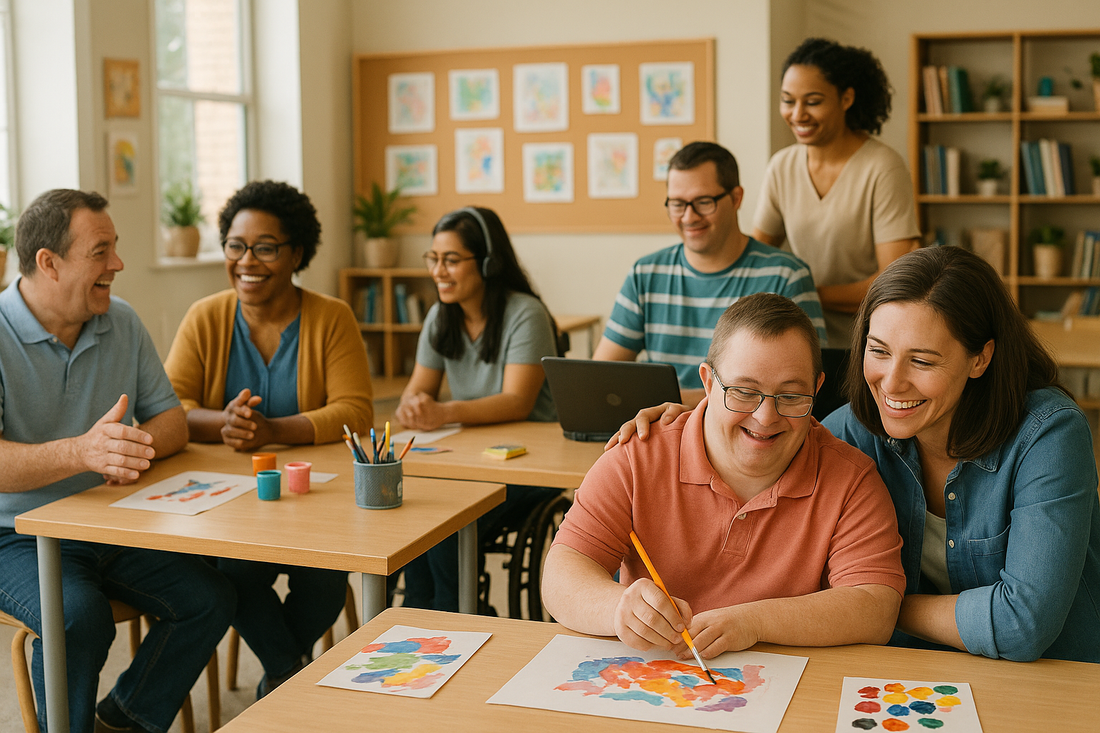Learn how disability-inclusive policing and better officer training can keep children and adults with Down syndrome, autism, and other developmental disabilities safe.
When I started Noah’s Buddy Box, my mission was to spread love, awareness, and inclusion for children like my son, Noah, who has Down syndrome and autism. But as Noah grows, my mission grows too. Today, it’s not just about sensory-friendly boxes filled with joy — it’s about creating a world where every person with a disability is safe, understood, and respected.
One of my biggest fears as a mom is what could happen if Noah ever encounters law enforcement. Noah communicates through gestures and sign language, not words. In a tense situation, would an officer recognize that? Or would they misinterpret his movements as resistance?
Sadly, many families already know the answer.
When Misunderstanding Turns Tragic
In 2013, Robert Ethan Saylor, a young man with Down syndrome, died after being restrained by police in a Maryland movie theater. The officers didn’t recognize his disability or understand his behavior. His death led to the creation of the Ethan Saylor Alliance for Self-Advocates as Educators, which now trains officers on developmental disabilities and communication.
In 2016, Charles Kinsey, a behavioral therapist in North Miami, was shot while protecting his autistic client who was holding a toy truck. The officer mistook the toy for a weapon. This tragedy shows how quickly fear and lack of training can turn misunderstanding into violence.
These stories are reminders that training saves lives.
What Disability-Inclusive Policing Means
Disability-inclusive policing isn’t about blame — it’s about education and empathy.
It means giving officers:
-
Recognition skills to identify behaviors linked to cognitive or developmental disabilities.
-
Response tools for communication, patience, and calm de-escalation.
-
Respect for every person’s dignity and humanity, no matter their ability or communication style.
With proper training, partnerships, and compassion, law enforcement can prevent unnecessary harm and build trust with families like mine.
How You Can Advocate for Safer Policing
You don’t have to be a policymaker to make a difference. Real change begins in our communities:
-
Start Conversations — Talk to local police departments about adding disability-awareness training. Ask about what programs they already have and how they can improve.
-
Partner With Advocacy Groups — Connect with organizations such as the Ethan Saylor Alliance or local autism and Down syndrome associations to promote officer education.
-
Share Stories — Spread awareness on social media and within your community. Every shared story helps humanize the need for change.
-
Support Training Legislation — Encourage your city and state officials to support funding for police training focused on communication, sensory awareness, and de-escalation for individuals with special needs.
-
Model Inclusion — Whether in schools, workplaces, or neighborhoods, showing empathy and understanding sets the example for how communities — and officers — should respond.
Change starts when we Recognize. Respond. and Respect.

